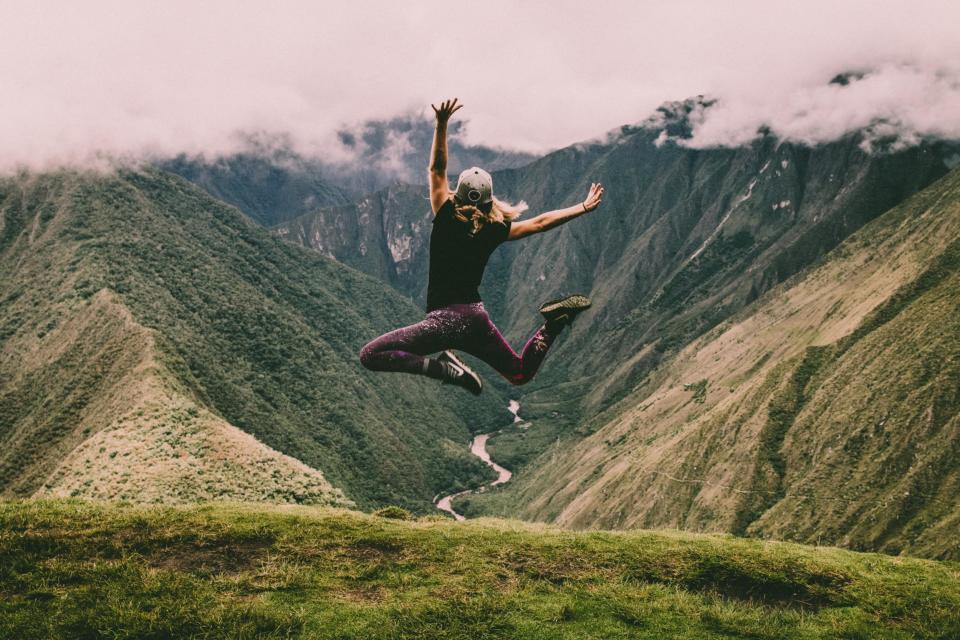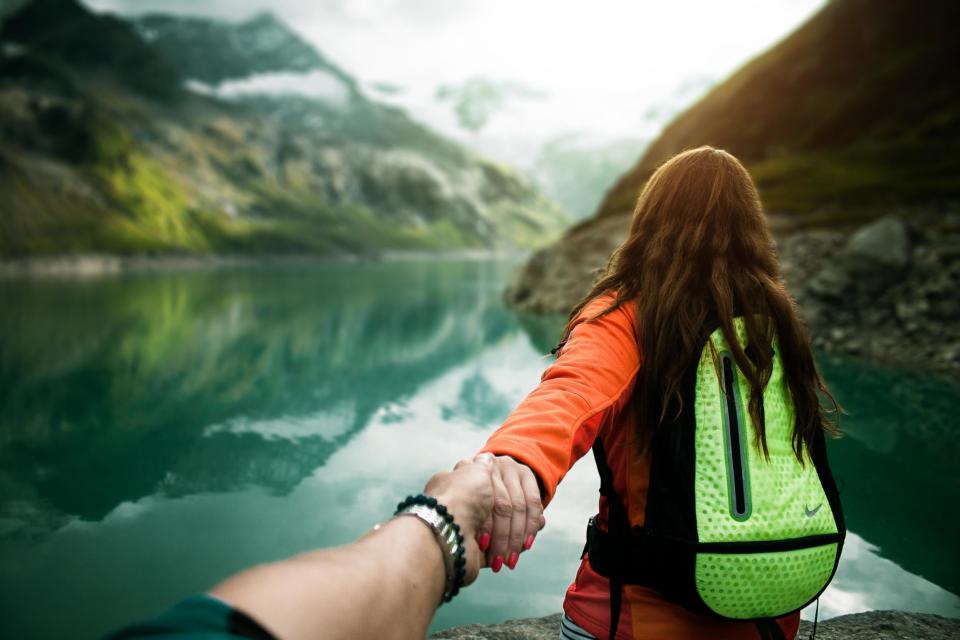Why you need to make 2019 the year you start hiking
If you haven't already heard, hiking is having a revival.
It's gained traction among younger people, thanks to the likes of Taylor Swift, Kendall Jenner and Gigi Hadid, who share their outdoorsy pursuits with their millions of followers on social media.
There are plenty of reasons to get in on the hiking action: it's free, it can be a great workout – and just think of the 'gram opportunities.

But hiking is good for your mind, too. Stephen Buckley, head of information at mental health charity Mind, told the Standard: "Outdoor exercises, such as hiking and rambling, can be a great way to improve our mental health and wellbeing, and evidence supports this.
"The University of Essex carried out some research for Mind, which found that 94 per cent of people who took part in outdoor exercise activities, like walking or even gardening, said that green exercise activities had benefited their mental health. In fact, 'ecotherapy' – activities that take place in nature – can be as effective as antidepressants in treating mild to moderate depression," he added.
According to Buckley, it's the nature itself, as well as the blood-pumping exercise, that really sets hiking apart from other kinds of exercise.
“Unlike working out in the gym or other indoor activities, the colours, sounds and smells we find outdoors stimulate our senses in a different way and can boost our mood," he explains. "Participating in activities outside with others can also help improve our self-esteem and reduce loneliness."

For city dwellers, hiking also offers an escape from the pressures of urban life, and, if you're headed somewhere reception-less, it's a good opportunity for a digital detox.
It's sociable, too. Rambling societies have long-since been popular with older generations, and now companies like Flashpack, are leading hikes all over the world aimed at a younger clientele (aged 30 to 40 years old).
So if you're considering hitting the hills this winter, former Royal Marine Commando and Flashpack expedition leader, Ian Finch, has a few tips for you.
A post shared by I A N F I N C H (@ianefinch) on Jan 21, 2018 at 11:38am PST
1. Go back to basics
"Google Maps won’t cut it when you’re up a mountain or in the middle of woodlands and no clue of how to get out again," says Finch. "Knowing how to read a map, especially Ordnance Survey topographic maps, is the most important thing for hikers. It shows detailed information about the terrain, roads, points of interest and distances."
He suggests downloading the Viewranger app, which works as a digital guide to the outdoors with downloadable routes, outdoor maps, and GPS navigation features.

2. Don't overestimate your abilities
"Walking for an amount of time through rough terrain is an entirely different game, especially when gradients are involved," he says. "You’re using muscles you may not even know you have, in many different ways."
So Finch recommends breaking it down with a hike in a local park to build stamina first. "Incorporate gentle incline cardio into your gym workout, and build up those leg muscles with squats, lunges and the step machine."
3. Take your prep seriously
Preparation begins well before you get outdoors. "Familiarise yourself with the ground by looking at maps and follow well-designated routes," he said.
"Always check the local weather beforehand, so you can dress accordingly," he says, adding that it's important to wear warm waterproof clothing, and take a whistle, map and torch with you if you plan to hike in the dark.

4. Always wear two pairs of socks
Finch says it's important to wear a thinner sock close to the skin, and a thicker one on top.
"If you hike for any amount of time, the slightest rubbing will lead to irritated skin or a blister. To heal something like this on a trail is painful. If you feel a rubbing, tape the area properly," he says.
You also need a pair of light-weight, waterproof gloves.
"Hiking with cold, chapped hands is miserable. Once they get cold, it’s hard to warm them up again."
5. Carry plenty of water and snacks
Finally, Finch says the most common problem with beginner hikers is not carrying enough water and it's also important to load up on plenty of snacks.
"Sometimes walks become longer or we have incorrectly judged [the] difficulty. Having extra snacks will always be welcome, to keep the energy topped up," he added, so he suggests packing sandwiches, nuts and bananas for your hike, and also using a water hydration system.

 Yahoo News
Yahoo News 